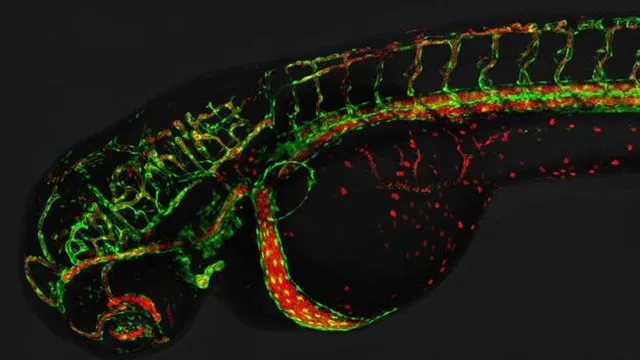
Revolutionary Breakthrough in Cancer Immunotherapy: Scientists Discover Game-Changing Method!
2024-12-17
Author: Sarah
Introduction
In an exciting development that could change the landscape of cancer treatment, researchers at Northwestern Medicine have unveiled a novel method for pinpointing reactive cysteines on peptide antigens integral to our immune system. This groundbreaking study, recently published in *Nature Communications*, hints at a future where cancer immunotherapy could be significantly more effective.
The Role of MHC-I in Immune Responses
The role of major histocompatibility complex class I (MHC-I) in orchestrating immune responses to cancer is well-established. However, the potential of the peptides displayed by MHC-I and their implications for therapies has been less explored—until now.
Research Insights
Dr. Xiaoyu Zhang, an assistant professor of Chemistry and the senior author of the study, explains, “When cells are either infected by viruses or turn cancerous, they present abnormal peptides that our immune system, especially T-cells, can recognize and target for elimination.” This study seeks to delve deeper into the reactivity of these peptide antigens, which serve as triggers for immune responses.
Experimental Methodology
To achieve their objectives, the researchers engineered molecular probes designed specifically to interact with cysteines, vital building blocks within peptide antigens on MHC-I molecules. Their experiments on various human leukemia cell lines yielded promising results, showing that these probes successfully reacted with cysteines across multiple peptide antigens, resulting in measurable immune signals.
Enhancing Immune Visibility
But they didn’t stop there. The team further tested the ability of these probes to mark leukemia cells, enhancing their visibility to immune fighter cells. The result? A remarkable triggering of antibody-dependent cellular phagocytosis—a process that could revolutionize the approach to inducing cancer cell death.
Significance of the Innovation
Dr. Zhang emphasized the significance of this innovation: “This is a major breakthrough—previously, scientists struggled to target antigen peptides with small molecules. Our study illustrates the feasibility of this approach.”
Future Directions
The implications are profound. According to Zhang, the research identified several peptide antigens that are expressed at higher levels in cancer cells than in normal cells, opening the door for developing more targeted therapies. “Our future goal is to create specific small molecules that can selectively target these antigens, taking a significant step forward in cancer immunotherapy.”
Conclusion
Co-author Dr. Deyu Fang, who serves as the Hosmer Allen Johnson Professor of Pathology at the Lurie Cancer Center, is confident that this research will lead to more effective treatment strategies aimed specifically at cancer cells.
Supported by the Ono Pharma Foundation and a National Institutes of Health grant, this study marks an exciting shift in the ongoing battle against cancer. As researchers stay the course in unraveling the complexities of cancer treatment, the hope for a more effective immunotherapy becomes ever more tangible.
Final Thoughts
Could this be the breakthrough that changes everything for cancer patients? Stay tuned for updates on this revolutionary research!

 Brasil (PT)
Brasil (PT)
 Canada (EN)
Canada (EN)
 Chile (ES)
Chile (ES)
 España (ES)
España (ES)
 France (FR)
France (FR)
 Hong Kong (EN)
Hong Kong (EN)
 Italia (IT)
Italia (IT)
 日本 (JA)
日本 (JA)
 Magyarország (HU)
Magyarország (HU)
 Norge (NO)
Norge (NO)
 Polska (PL)
Polska (PL)
 Schweiz (DE)
Schweiz (DE)
 Singapore (EN)
Singapore (EN)
 Sverige (SV)
Sverige (SV)
 Suomi (FI)
Suomi (FI)
 Türkiye (TR)
Türkiye (TR)